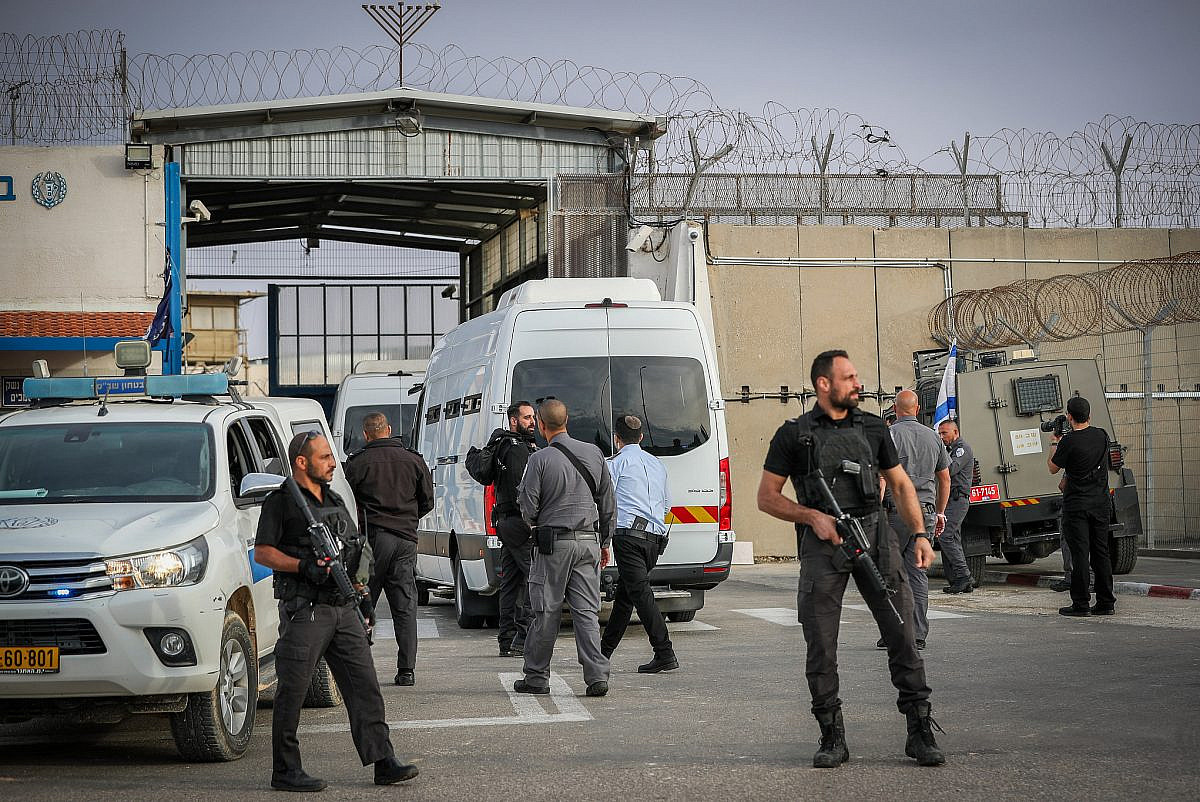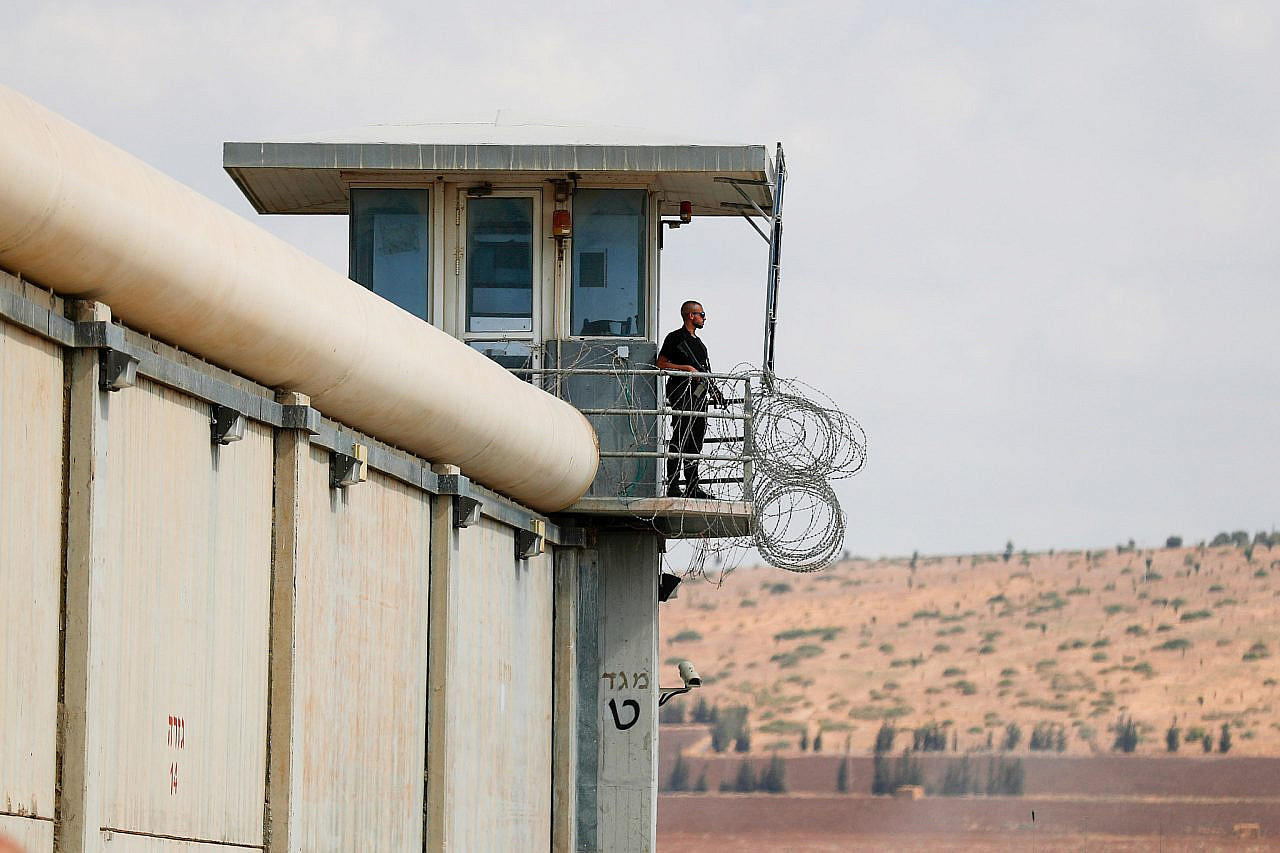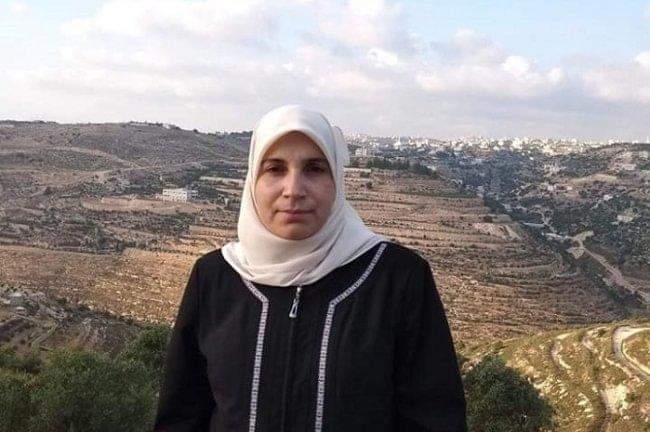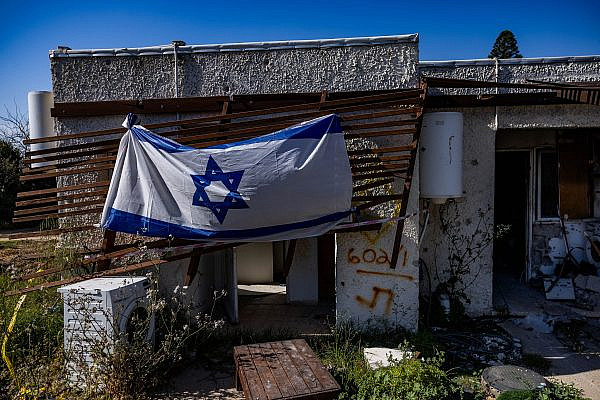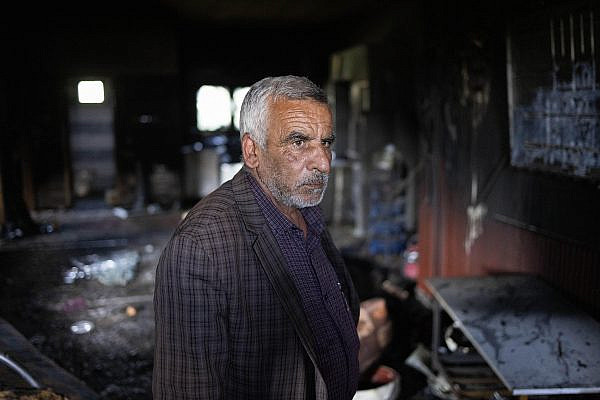Content warning: This article contains testimonies of severe abuse and threats of sexual assault.
The release of 240 Palestinian prisoners and detainees during the recent temporary ceasefire between Israel and Hamas has shed light on the severe deterioration of conditions inside Israeli prisons since the war began. Restrictions imposed since October 7 by the Israel Prison Service, under the instruction of National Security Minister Itamar Ben Gvir, include the limiting of food provisions and recreation time; the confiscation of personal items; a prohibition on hot water, shoes, and pillows; and a ban on visits by family members and lawyers. These restrictions, however, are only the tip of the iceberg.
Testimonies gathered by +972 Magazine from Palestinians released from Israeli prisons in recent weeks — both as part of the ceasefire agreement and independently of it — paint a picture of a surge in abuse and humiliation inside prison cells, in interrogation rooms, and during arrests. According to these testimonies, Israeli forces and prison authorities have used methods of torture, threatened to rape a female detainee and her young daughter, and beaten a prisoner to death — one of six Palestinians known to have died in Israeli custody since October 7.
In the two months since declaring a state of war in the wake of the Hamas-led assault on southern Israel, Israeli forces have arrested more than 3,000 Palestinians, detaining many of them without charge. This number does not include the estimated 4,000 laborers from Gaza who were in Israel when the war broke out and were detained for weeks before being deported back to the besieged Strip.
According to the human rights NGO HaMoked, among the more that 7,600 “security” inmates that Israel is currently holding in prisons across Israel and the occupied West Bank are at least 260 Palestinians that it defines as “unlawful combatants,” including those who participated in the attacks of October 7. Members of that group, say the former inmates who spoke to +972, are being held in a designated section of Ofer Prison, west of Ramallah, and their constant screams can be heard alongside the barking of dogs. Israel is concealing the names and detention conditions of many of the detainees from Gaza and is preventing lawyers and the Red Cross from visiting them.
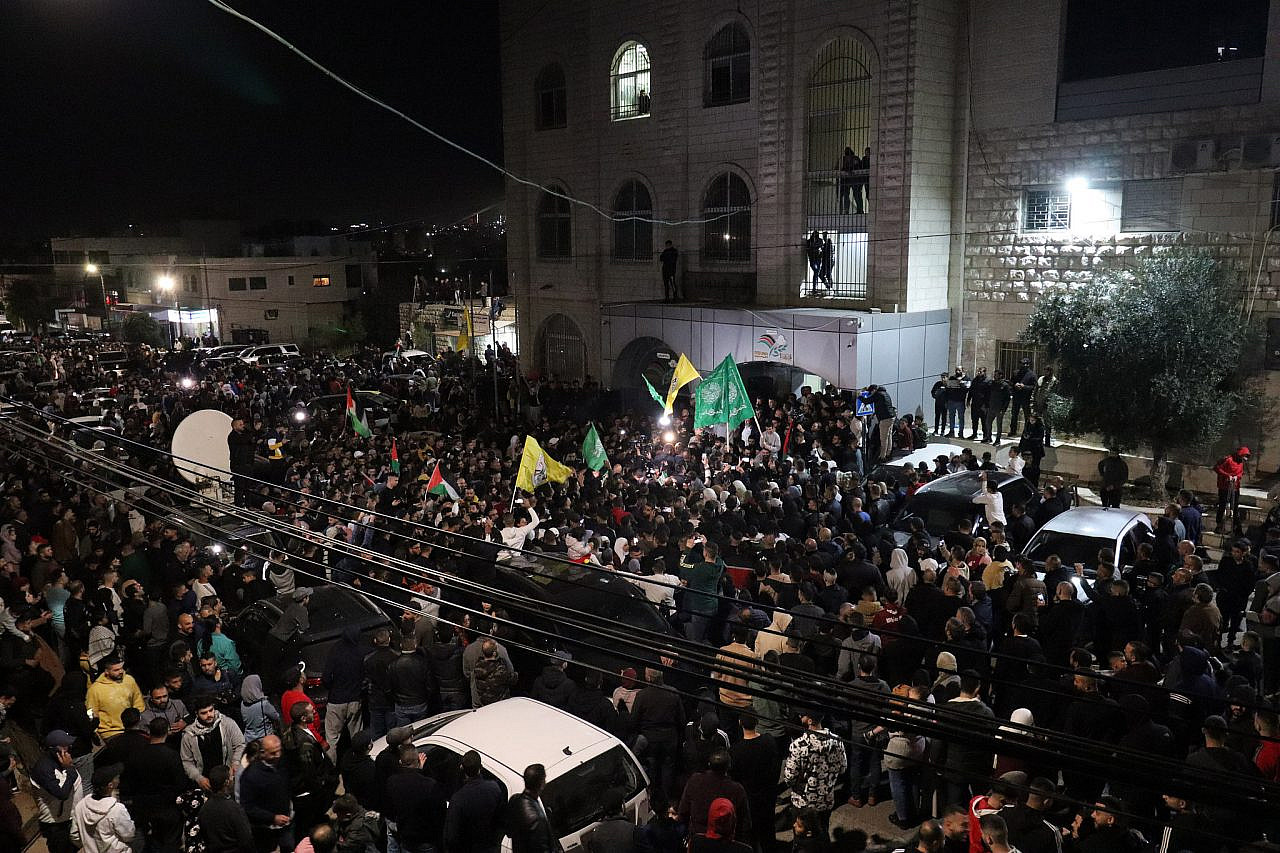
“I was in prison for many years,” Qadura Fares, the head of the Palestinian Authority’s Commission for Detainees’ Affairs, told +972. “There was never anything like this. I heard things that I cannot believe.”
According to Amjad a-Najjar from the Palestinian Prisoners’ Society, since October 7, the IPS has confiscated inmates’ televisions, radios, electronic devices, clothes, shoes, medications, books, and stationery. “Ben Gvir has declared war against the prisoners,” he said. “The tools of communication are batons and beatings. Death hovers over the prisons, awaiting a decision from the guards to strike any of the detainees.”
Beaten to death in a cell
On Nov. 18, the IPS reported the death of 38-year-old prisoner Thaer Samih Abu Assab, a resident of the West Bank city of Qalqilya, at Soroka Hospital in southern Israel. Abu Assab was 18 years into a 25-year sentence at Ketziot Prison in the Naqab/Negev desert. His family has received no further information and have stated that he did not suffer from any pre-existing illnesses.
Mahmoud Katnani, one of the prisoners released in the exchange deal between Israel and Hamas, was in the same prison cell where Abu Assab was held. “On Nov. 18, at 6 p.m. during the security count, the forces [from the IPS’s rapid response unit, Keter] began to break into the room. There were 10 prisoners in the room, and we sat as usual: kneeling with our hands over our heads and heads down. Suddenly, the forces attacked us for no apparent reason, beating us with batons and kicking us.
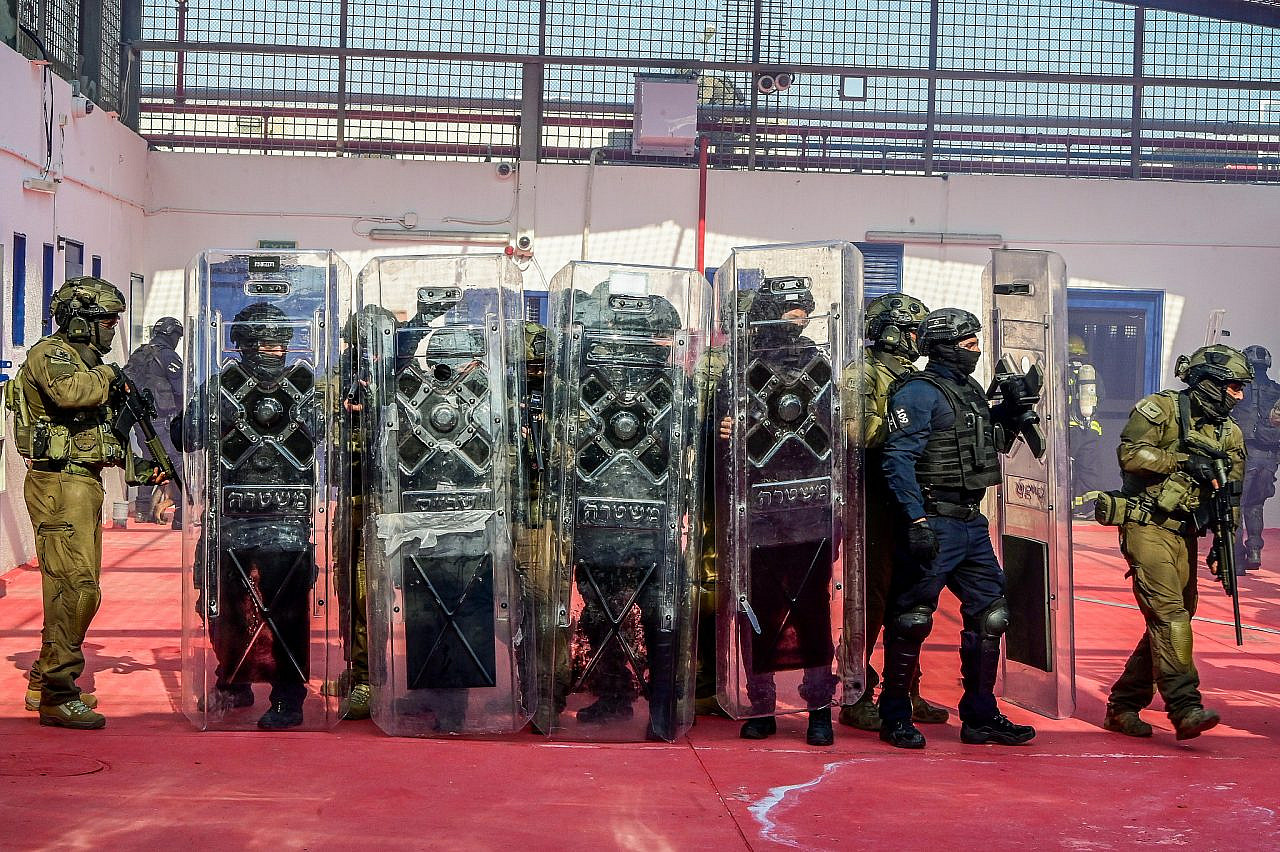
“The beating continued violently,” Katnani went on. “They slammed the prisoner Thaer Abu Assab on the floor and dragged him to a corner near the bathroom, beating him on his head and body for several minutes. Then they exited the room, leaving Thaer covered in blood flowing heavily from his head. We approached him [and realized that] his heart had stopped beating. We pulled him to the middle of the room; he had died.
“We covered him with a blanket and began screaming at the guards for an hour and a half until a nurse, guards, and members of the same force arrived in the room,” Katnani continued. “Abu Assab’s body was taken away. Shortly after, a member of the force arrived and informed us of his death.”
The circumstances surrounding the deaths of several other Palestinians in Israeli custody in the past two months are less clear. Two Palestinians from Gaza — including 32-year-old laborer Majed Ahmed Zaqoul who was arrested inside Israel sometime after October 7, and another whose details are not known — died at the Anatot Detention Center just outside Jerusalem in the occupied West Bank. Abd al-Rahman Ahmed Muhammad Mar’i, a 33-year-old resident of the town of Qarawat Bani Hassan in the northern West Bank, died at Megiddo Prison in northern Israel on Oct. 13, where he had been held since February without trial.
Omar Hamza Daraghmeh, a 58-year-old from Tubas in the northern West Bank and a senior Hamas member, was arrested with his son Hamza at their home on Oct. 9. He was transferred from Anatot to Megiddo prison Oct. 23, where he stood trial via video conference. Later that day, he was dead; Hamas has accused Israel of assassinating him.
Daraghmeh’s brother, Abdel Hakim, told +972: “My brother was ill. Shortly before his arrest, we had conducted a coronary artery catheterization with stent transplantation for him. He required daily medication, the most crucial of which was a blood thinner to prevent clotting. My brother died in prison, where there was neither medical treatment nor care.”
Killed by neglect
The sixth Palestinian killed in Israeli custody since October 7 is Arafat Yasser Hamdan. On Oct. 22, Israeli forces raided his home in the village of Beit Sira, near Ramallah. Hamdan, a 25-year-old with diabetes and pancreatic dysfunction and the father of an infant daughter, was handcuffed and had a bag placed over his head in front of his wife and mother, before being taken into custody. Two days later, Israeli authorities informed his family that he had died. The family has received no further information from them since.
S.A., a 58-year-old from southern Hebron, was with Hamdan the day he died. “On the morning of Oct. 24, we were placed in a vehicle that would take us from the Gush Etzion Detention Center to [Ofer Military] Court,” he recounted. “Arafat was with me. Suddenly, he collapsed unconscious inside the vehicle, his face pale. Despite our pleas, none of the soldiers paid attention.
“After about 10 minutes, a soldier finally arrived holding a small plastic cup of water, which he gave to Arafat to drink,” S.A. continued. “The soldier seated Arafat in the front of the vehicle. After another 10 minutes, the soldier returned Arafat to us, making him sit on the ground with his hands and feet cuffed like the rest of us. His condition was deteriorating.”
Throughout the journey, S.A. explained, the other detainees repeatedly informed the guards that Arafat was experiencing a lot of pain due to a lack of sugar — having not eaten for two days due to the poor quality of food that they had been given — and that he needed to take his medications. “None of the soldiers paid any attention,” he said. “It was as if we did not exist.”
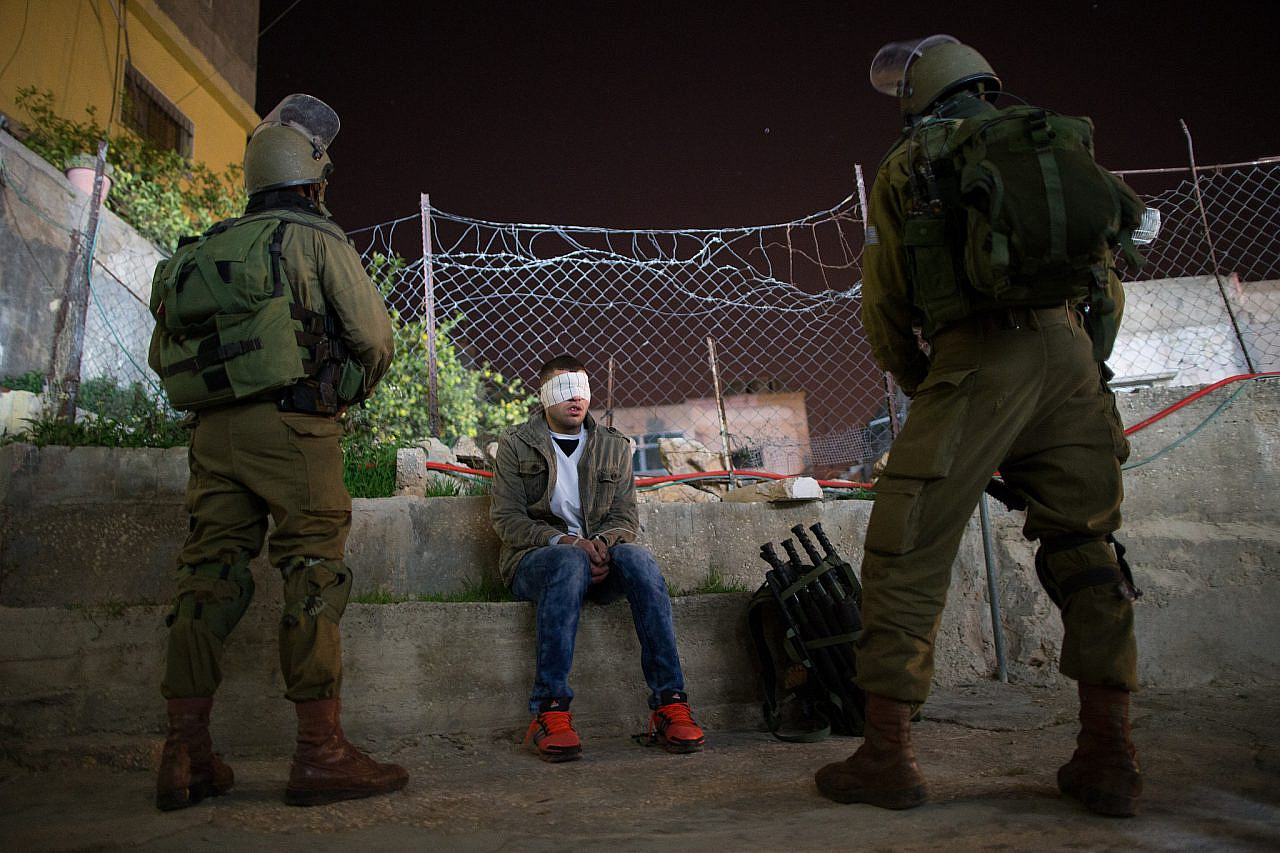
Their vehicle arrived at Ofer, where the men were transferred to a small cell measuring 3 by 4 meters, containing 20 detainees. “While waiting, we continued to request sugar and water for Arafat, who was lying on the floor,” S.A. went on. “Eventually, one of the soldiers brought a small piece of chocolate — it did not exceed 1 centimeter. We remained inside the cell until 3 p.m., continuously asking for sugar. Eventually, one nurse arrived, and we told him that the young man was experiencing low blood sugar, but the nurse left and didn’t return.”
Over the next few hours, the detainees were transferred to different sections of the prison, and word soon began to spread that Hamdan had died. “There was not a spoon of sugar to save this young man,” S.A. lamented.
‘I will ask them to rape you right here’
Lama Khater, a journalist and writer from Hebron and a mother of five children, was arrested on Oct. 26 at her home in the Loza area, west of Hebron. “I could not have imagined the severity of the situation,” she said, describing how the soldiers trashed the contents of her home during the arrest. “I was taken to a military vehicle where I was forced to lie down on the floor, handcuffed and blindfolded. Soldiers sat next to me until we reached a location unknown to me.
“I was brought into a room,” Khater continued. “I could see with limited visibility beneath the blindfold. I asked to go to the toilet and drink water, but the female soldier refused. They claimed not to understand Arabic; I tried English, but to no avail. After an hour of detention, I was allowed to use the restroom and drank water from the tap there. The female soldier refused to allow me to close the toilet door completely.”
After that, Khater was taken by a female soldier to an interrogation room, still handcuffed and blindfolded. She was seated in a chair and played an audio recording of somebody speaking about the atrocities committed by Hamas in the Israeli communities near the Gaza fence.
The interrogator “asked me my opinion about the rape of a 10-year-old [Israeli] girl,” she recalled. “I stated that I didn’t know anything about this. The interrogator yelled at me and insulted me using offensive language. He then said: ‘You should know that there are 20 soldiers in this room — I will ask them to rape you right here.’”
According to Khater, the interrogator’s threats went on. “He said: ‘The girl who was raped looks like your daughter Yaman, and we could bring Yaman there and be raped, and I could go to your house and burn your children down while they sleep. Here there are no laws or rights. You are a prisoner of war, and I hope that a government will come that will allow us to do what we want with you [Palestinians].’”
At that point, Khater explained, the interrogator came right up to her and removed her blindfold. He was wearing civilian clothing and a mask, and he took photos of her before leaving the room.
Khater was then taken to HaSharon Prison in central Israel. “Another female detainee and I underwent a strip search,” she recounted. “In front of the cell where we were about to enter, the guards brought out a [non-security] prisoner whose face was marked with bumps and blisters, wrapping his body in a blanket. The guards were talking among themselves, as if he had a serious infectious disease.
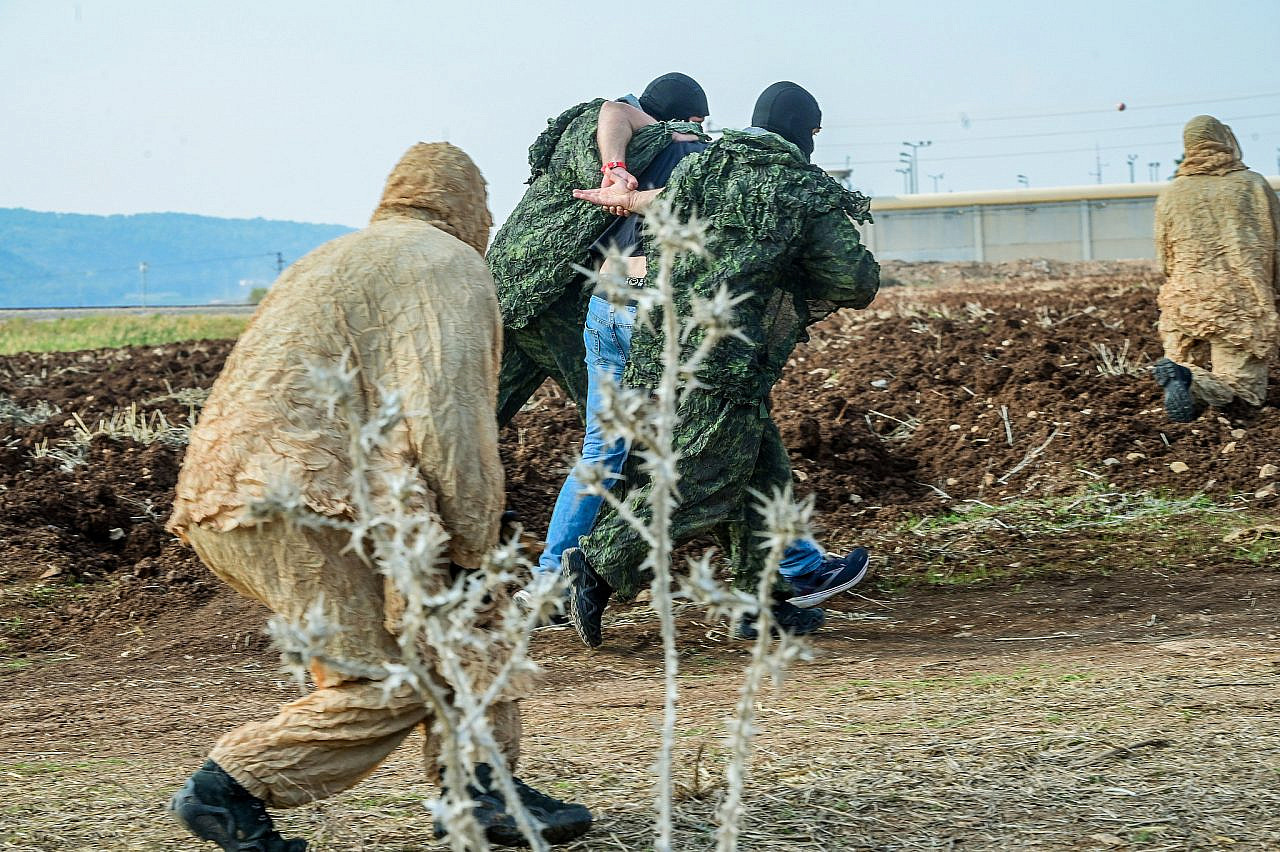
“We were led into the cell,” Khater continued. “His clothes were lying on the floor, and the floor was full of saliva. There were two mattresses on the floor, one of which bore traces of the prisoner’s vomit. The [adjoining] restroom door was open, exposed to the cell. We remained standing in the center of the cell surrounded by a pervasive odor and humidity from the restroom.”
According to Khater, the detainees were held there for approximately 10 hours, without access to water. Then, the guards brought four more Palestinian women detainees into the small room. “At a later stage, food was provided, and it is difficult to describe its condition,” she added.
From there, Khater was transferred to Al-Damon Women’s Prison, and the mistreatment continued. “All the prisoners’ belongings in the rooms were confiscated, leaving only the beds,” she explained.
Later, prison guards brought in four women detainees from Gaza, who Khater learned had been arrested on Salah al-Din Street during the mass forced exodus of Palestinians from the north of the Strip amid Israel’s ground invasion. These detainees, she said, were wearing light brown clothes, with the Hebrew letter “ע” written on them — the first letter of the Hebrew word for Gaza.
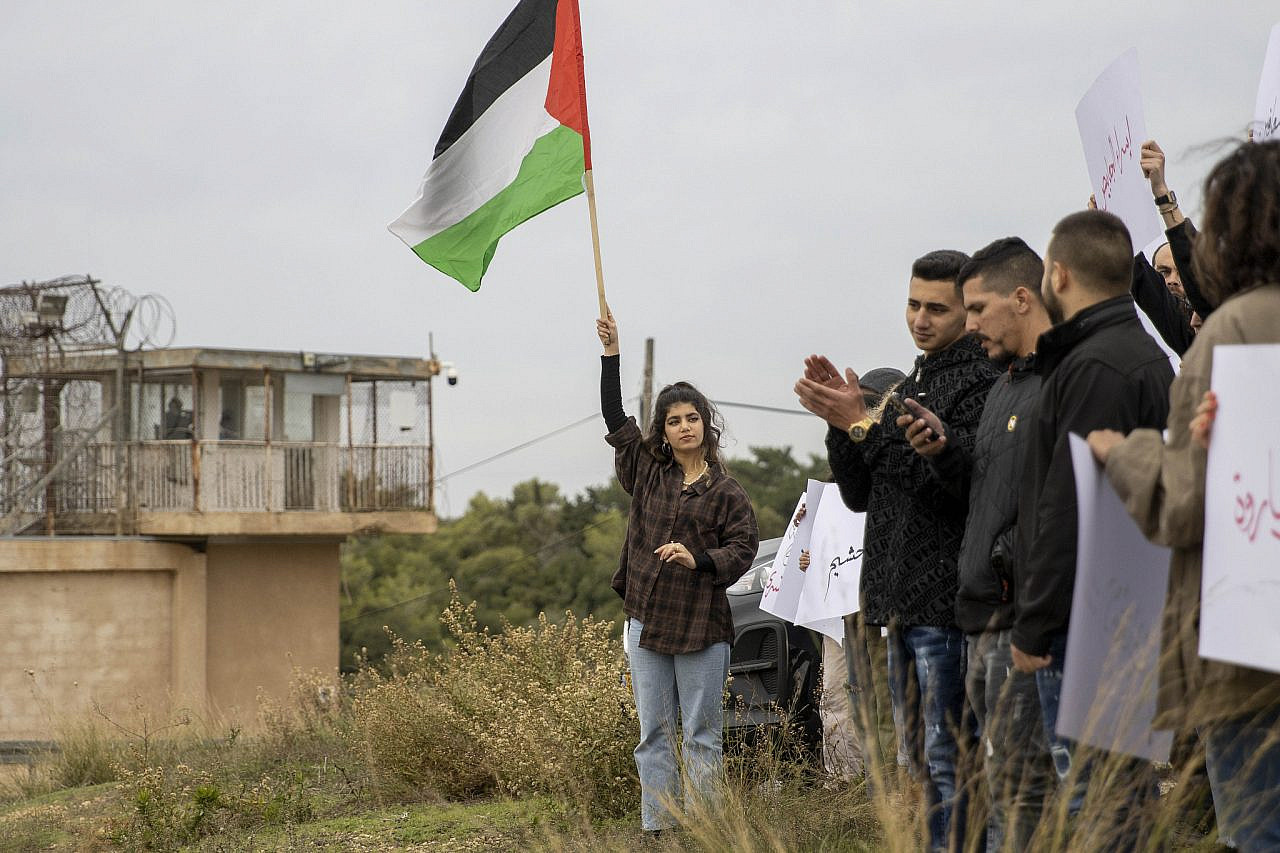
“The women had their hands and feet cuffed, with a rope tying their hands,” Khater recounted. “They were without headscarves. They were taken into a separate room. Later, I tried to talk to them through the door window. The first request they made was for headscarves. One of them had been forced [by Israeli soldiers] to give her 2-month-old baby, who was with her at the time of arrest, to a stranger before being taken into custody.”
‘I refused to kiss the Israeli flag, so they broke three of my ribs’
Several other Palestinians who were recently released from Israeli prisons detailed the extensive abuse they experienced inside. Foad Hasan, a 45-year-old father of five from the village of Qusra, near Nablus, was released on Nov. 12 after spending a week in Megiddo Prison. “The conditions in Megiddo are terrible, impossible to describe,” he told +972.
“They tried to make me kiss the Israeli flag, and when I refused, they beat me so badly that they broke three of my ribs,” he continued. “One other guy from Jaba’ [a village near Jenin] also refused to kiss the Israeli flag, and the prison guards broke his leg and ribs too. When you arrive at Megiddo, they say ‘Welcome to hell.’”
Nashaat Dawabsheh, a 17-year-old from the Jerusalem neighborhood of Silwan, was released on Nov. 26 as part of the hostage-prisoner exchange between Israel and Hamas. “On October 7, the prison authority took all of our belongings and everything that we had in our cell,” he told +972. “We were left with one set of clothes, that’s all. We were beaten every day for no reason whatsoever — curses and humiliation every day.”
Nasralla al-A’war, a 17-year-old from Silwan, who was released with Dawabsheh on Nov. 26, said that the prison guards “unleashed the dogs on us without muzzles. We were beaten and they did not stop cursing and humiliating us, and there was very little food.”
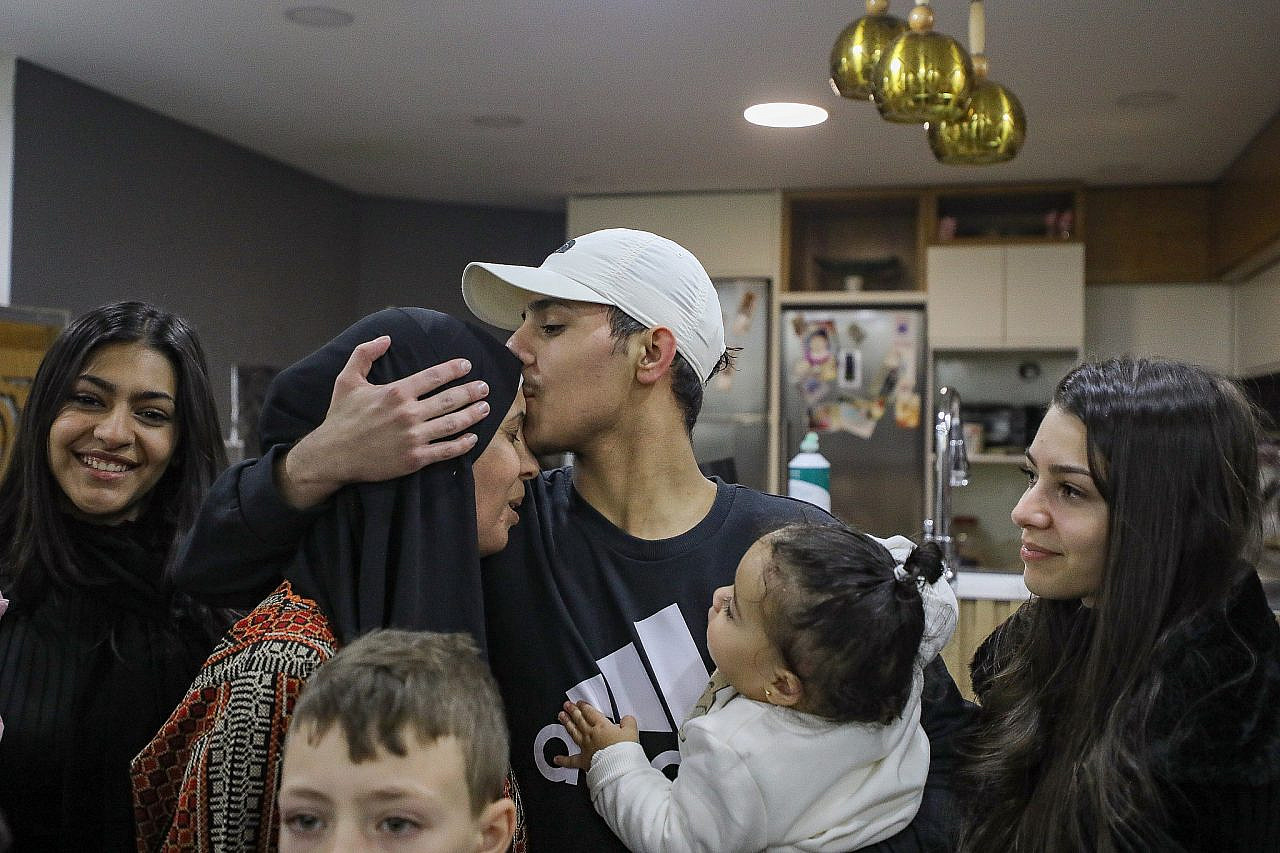
Abdelkader Ali al-Hethnawi, a 46-year-old from the town of Qabatiya, near Jenin, told +972 that he was detained by Israeli forces on Oct. 30 on the grounds that they were searching for his nephew. He was taken to Megiddo Prison, where he, too, was forced to kiss the flag and was assaulted by the guards.
“Life is almost non-existent [inside the prison],” al-Hethnawi said. “Electricity was being turned off. There were no extra clothes, so we were forced to wear underwear right after washing them without time for them to dry. Some days, we fasted to allow the underage detainees to eat more food. Chronically ill detainees, suffering from conditions like hypertension and diabetes, were deprived of necessary medication. Even those injured as a result of assaults, with broken hands or teeth, were denied treatment.
“I saw blood on the floors of the solitary confinement cells,” he continued. “Some faced violent assaults for not cursing Hamas. Guards would step on detainees’ heads with their shoes. Detainees were beaten on their heads with belts, and hot and ice water was poured on their bodies. Guards beat detainees on sensitive areas of their bodies while telling them, ‘We will deprive you of being a dad.’” Al-Hethnawi concluded his account in tears, saying: “Had they shot us and killed us, it would have been better than this torture.”
‘I experienced humiliation in every possible way’
Palestinians are experiencing these forms of abuse not only inside prisons but also during arrests. On Oct. 30, Israeli soldiers raided the home of Bara’a Huraini in Yatta, south of Hebron. They subjected him to severe beatings inside his home and did the same to his brother Hassan. They hit his head on the ground until he bled. The soldiers then violently removed both brothers from the house.
“They pushed us toward the side of the military jeep, blindfolding us with cloth,” Huraini told +972. “One of them grabbed me by the hands, and the other from my pants, causing [the pants] to drop down to my knees. They threw me onto the floor of the jeep. When I asked to put on my pants, the response was ‘Shut up.’ The soldiers tightly bound my feet to a plastic cleat, leaving them outside the door. As they pushed me inside, I felt that my left foot was paralyzed.
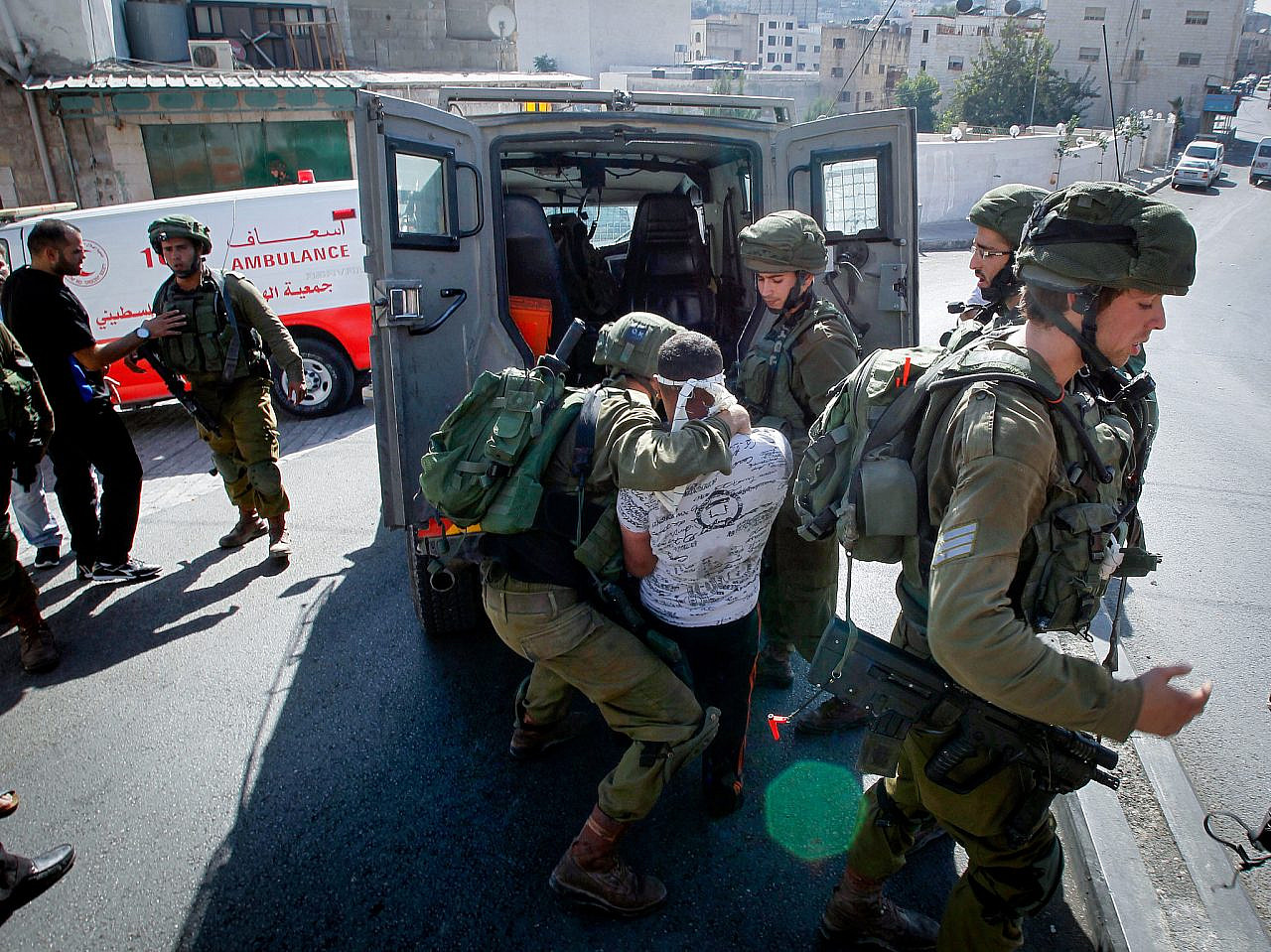
“The soldiers started to board the jeep while stepping on me with their shoes,” Huraini continued. “Before the vehicle moved, one of them pressed his shoe against my head, and this continued throughout the journey. Meanwhile, the rest of my body endured beatings with their hands and rifle butts. I experienced humiliation in every possible way.”
According to Huraini, the jeep stopped after about 20 minutes, and the soldiers tried to force him out. “They tried to make me stand to get out, but I was restrained and exhausted from the beatings, causing me to fall onto the floor of the vehicle. The soldiers grabbed me again and threw me out of the vehicle. I landed on my face and felt intense pain. I tried to lift my head, and the blindfold fell off my eyes. One soldier attacked me, punching me in the face before putting the blindfold back in place.
“After that, soldiers dragged me by my arms and feet across the ground through the soil and thorns until I was seated in a chair inside another vehicle,” Huraini went on. “One of them lifted my pants, and the vehicle drove forward. I needed water, but the answer was ‘Shut up, shut up.’ When the vehicle stopped, fear overwhelmed me due to the intense pain. I refrained from asking anything to avoid facing another round of beating.”
When the vehicle stopped, Huraini was thrown on the floor again, with his brother next to him. “There was an intelligence officer who said to us: ‘Treatment has changed today, Da’esh [ISIS], give the message to everyone.’ After that, we were let go, and I went to hospital as there were numerous wounds on my head.”
Most read on +972
At 2:30 a.m. on Nov. 15, Israeli forces raided another home in Dura, south of Hebron, and arrested 22-year-old university student Jenin Amr, along with her 24-year-old brother Hammam. “Soldiers took me and dropped me face down on the vehicle’s floor and did the same with my brother,” Amr recounted after her release. “The vehicle drove until the soldiers brought another young woman and threw her on top of us.
“Throughout the journey, soldiers kicked us and beat us with rifle butts,” she continued. “The car stopped in the center of a public square near Adoraim Camp, south of Hebron, and the soldiers violently removed us from the military vehicle. I fell to the ground and my headscarf slipped off my head. The soldier started laughing, saying, ‘You wear beautiful golden earrings.’ Only after some time did he allow me to wear my headscarf again.
“We were seated on the floor until 6:30 a.m.,” Amr went on. “We were subjected to verbal humiliation from the soldiers while they filmed us with their phones. After that, we were taken onto a bus that had arrived there. As the bus started moving, one of the soldiers entered, speaking in Arabic with an Egyptian accent, and said: ‘We will now send you to execution; the time has come for us to avenge October 7.’” The siblings were transferred to an interrogation center, and later released. On Dec. 3, Amr was arrested again.
Update: After publication of this article, the IPS responded to +972’s request for comment with the following: “Claims such as those presented [here] are not known to us. However, we note that every prisoner has the right to file a complaint through the usual channels. In the case of all the prisoners who died since the beginning of the war, there are commissions of inquiry as required by the protocols of the IPS. Therefore, at this stage we cannot detail the circumstances of the death.”
This article contains additional reporting by Oren Ziv and Meron Rapoport.

